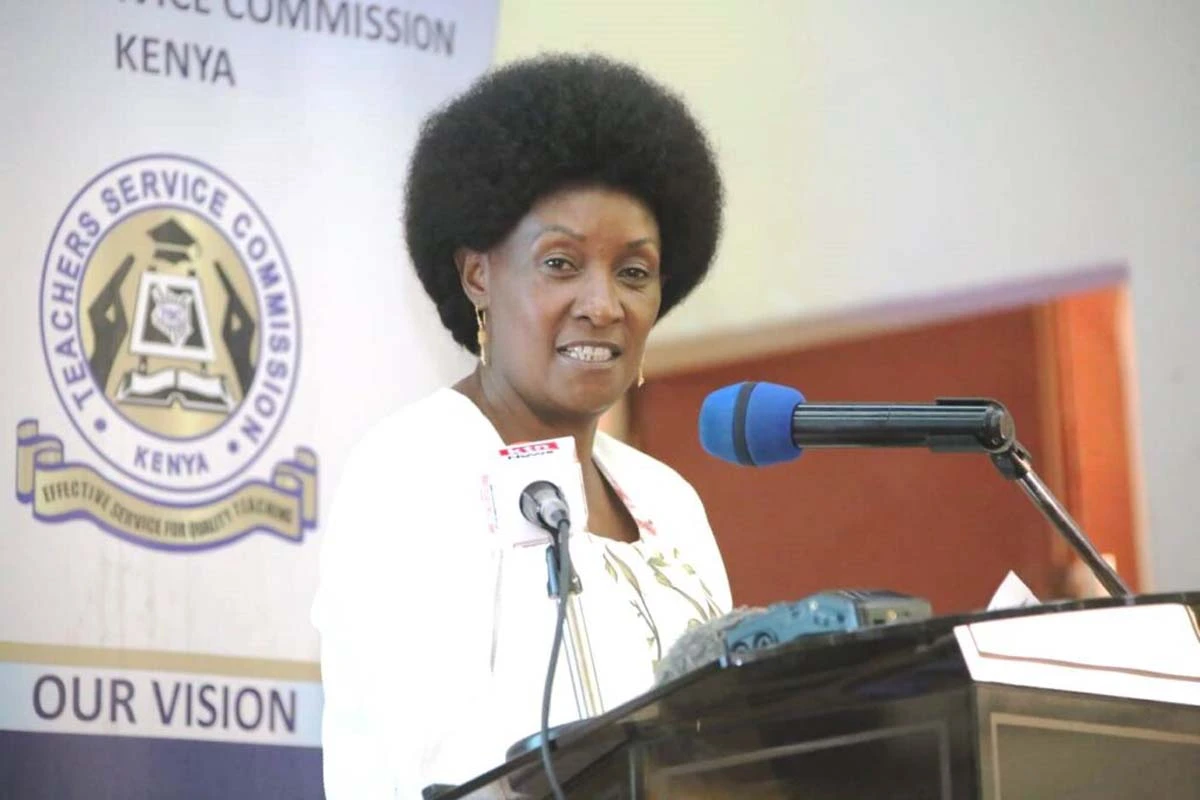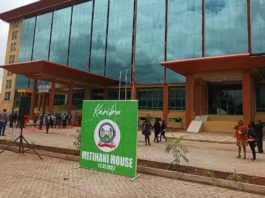Over 25,000 teachers waiting for promotions will know their fate this Tuesday as the Teachers Service Commission (TSC) faces the National Assembly’s Education Committee. The meeting will determine whether the promotions will go ahead — or be scrapped entirely.
Promotions Suspended After Stakeholders Uproar
On April 2, 2025, TSC released a list of teachers promoted across various grades. But the move was met with immediate backlash. Education stakeholders and MPs rejected the outcome, calling it unfair and biased.
The Education Committee raised concerns about the transparency of the promotion process, saying TSC used unclear criteria that didn’t promote equity across regions. Some counties were overrepresented, while others with qualified candidates were ignored.
TSC To Explain Promotion Criteria
The committee, chaired by MP Julius Melly (Tinderet), has summoned all TSC commissioners, including CEO Nancy Macharia, to justify the selection process and give updates on the implementation of recommendations made during their earlier meeting on April 14, 2025.
So far, the affected teachers have not received their salary increments linked to the promotions. Tuesday’s meeting could be the final call for who moves up the ranks and who gets removed from the promotions list altogether.
MPs’ Demands: Fairness And Transparency
After the April meeting, the committee issued several recommendations to ensure fairness and balance in future promotions:
- Review promotions within six months of a previous promotion.
- Prioritize teachers who’ve served in the same job group for over seven years.
- Give preference to those nearing retirement (within three years).
- Avoid double promotions — those promoted last year shouldn’t be promoted again this year.
- Ensure regional equity by factoring in population and staffing disparities.
Disparities In Promotion Numbers Across Counties
According to data presented to the committee, Machakos County had 690 teachers promoted, while Garissa County had only 303. This raised more questions on how the promotion slots were distributed.A source within TSC revealed that after the April meeting, TSC leadership was asked if Ms. Macharia had misadvised the commission. But the CEO said her advice had been ignored, hence the current impasse.
“Before we could announce the interview results, stakeholders were already protesting the promotion criteria,” Macharia said during a recent Kenya National Schools Principals Forum in Mombasa.
Breakdown Of Promotions By Grade
The promotions involved nine grades from C2 to D5, with the bulk concentrated in the middle ranks:
- C4: 8,508 teachers
- C5: 5,425 teachers
- C3: 4,971 teachers
- D1: 2,519 teachers
- C2: 1,445 teachers
- D3: 1,410 teachers
- D2: 799 teachers
- D4: 128 teachers
- D5: 47 teachers
Although these figures reflect a widespread promotion exercise, critics argue that the numbers don’t align with county populations or staffing needs.
Equity Vs Equal Distribution
A key point of contention has been equal allocation of promotion slots across counties. Organizations like the Kenya Secondary School Heads Association (KESSHA) argue that this approach ignores variations in student population and teacher shortages in some areas.
The MPs insist that equity, not equality, must guide the distribution — meaning areas with more schools and teachers should receive a proportional share of promotions.
What’s Next For The Affected Teachers?
The TSC’s appearance before Parliament will be crucial in shaping the next steps. Depending on the committee’s satisfaction with the TSC’s explanation and data, some teachers may:
- Retain their promotions
- Be removed from the list
- Be added if previously left out
The commission will also be expected to demonstrate how it plans to implement a fairer promotion process going forward.
Conclusion
The TSC vs Education Committee standoff is about transparency, regional equity and fairness in the public education sector. TSC says the promotions were merit-based, Parliament is asking for accountability and corrective action.
As the education sector waits with bated breath, one thing is clear: the decisions this week will affect thousands of teachers and their families — not just financially but morally, motivationally and in trust in the system.




